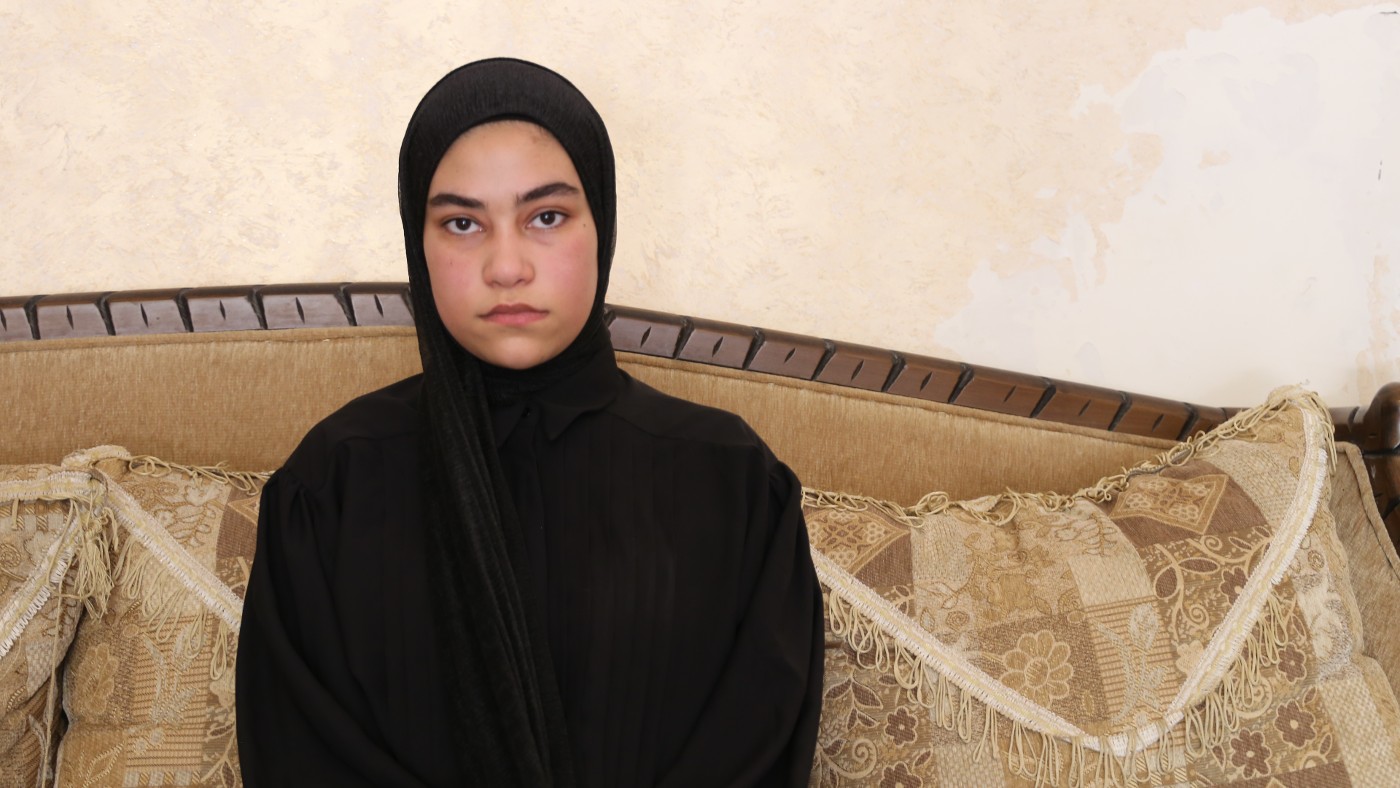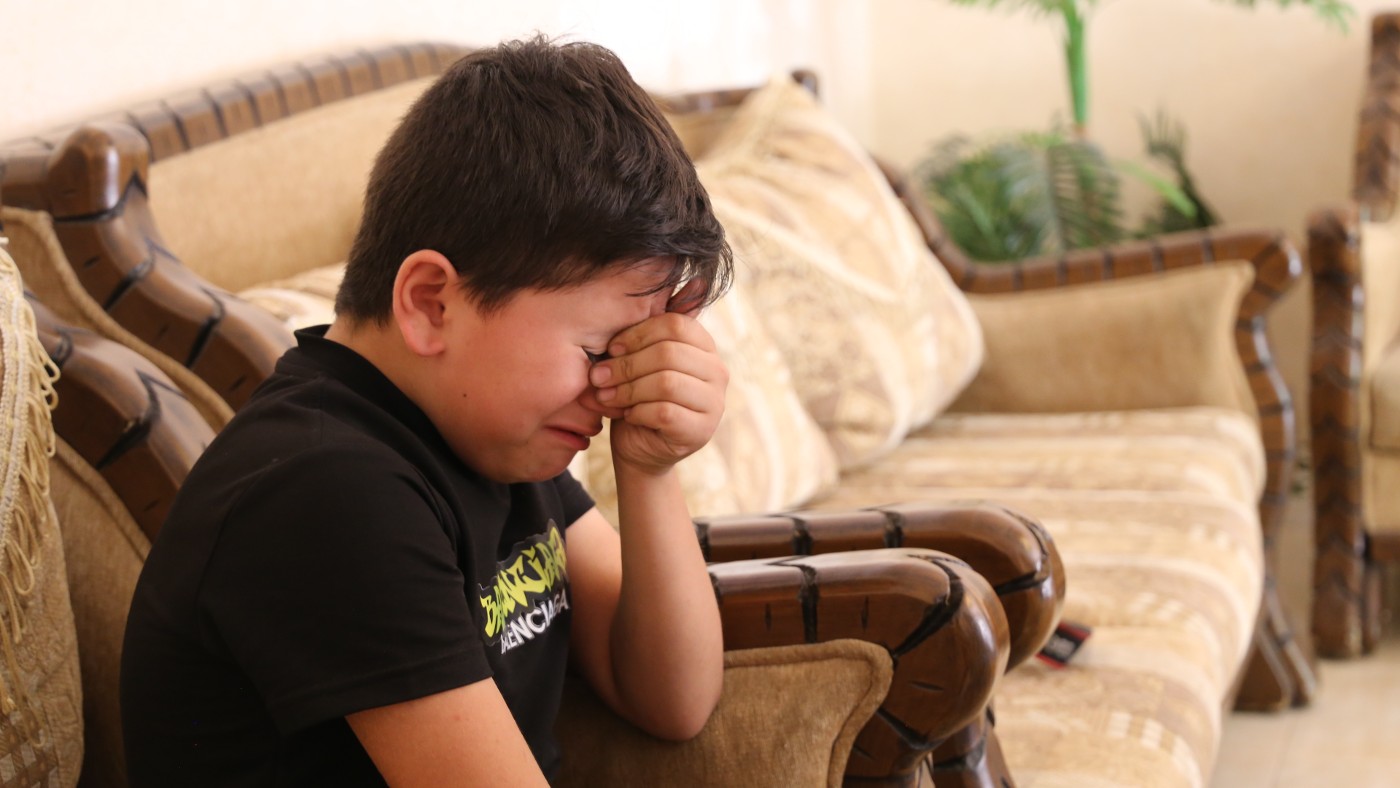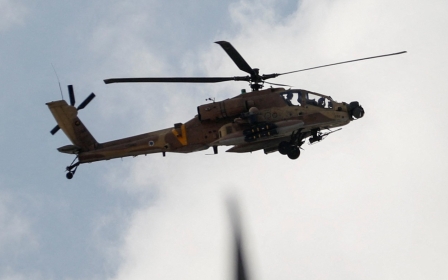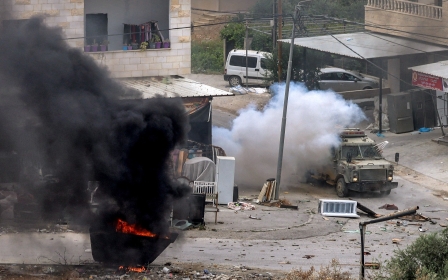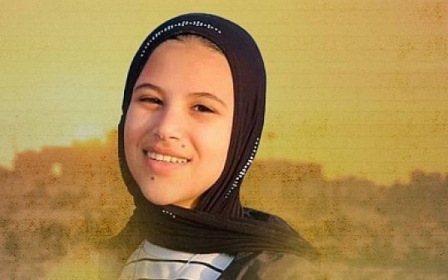Palestinian girl killed by Israeli sniper mourned by family who witnessed shooting
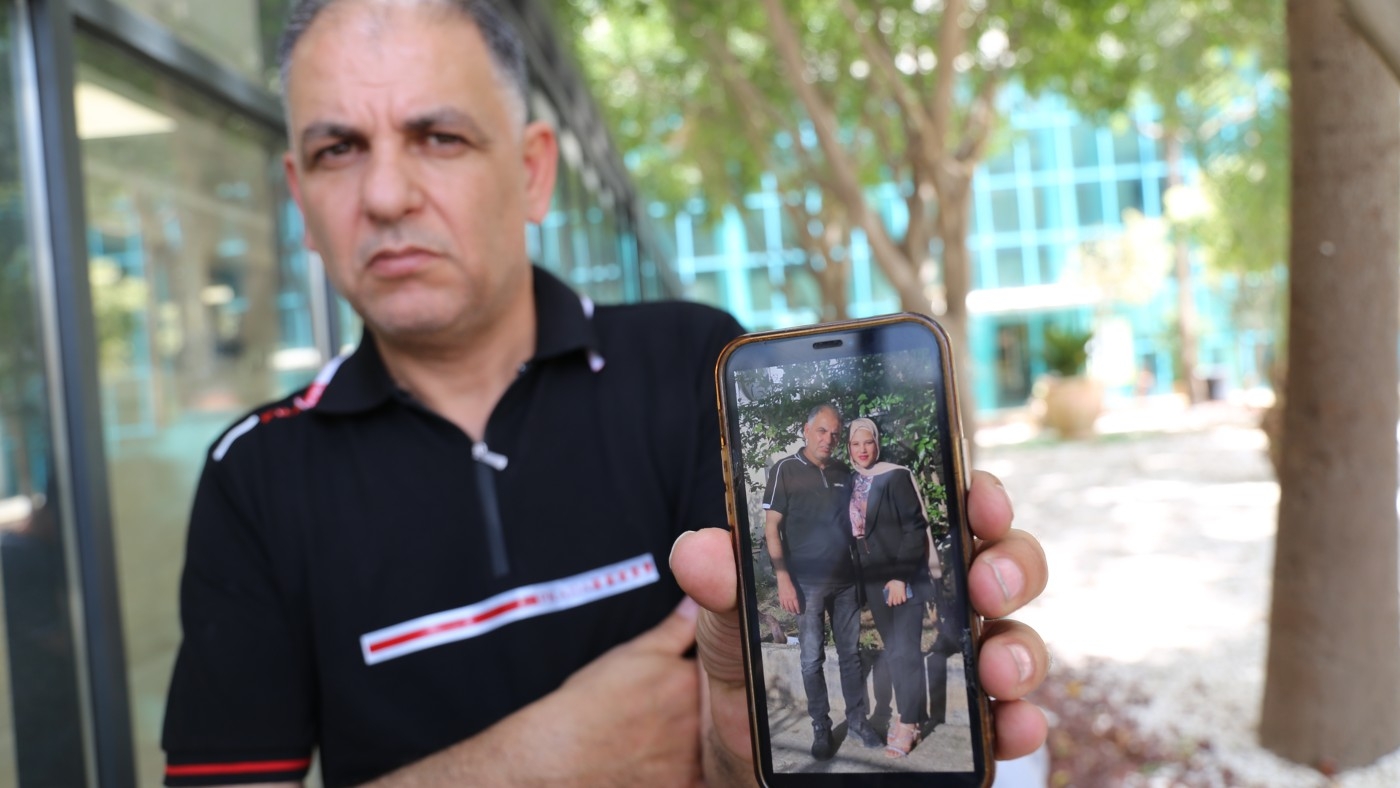
Sitting in the living room of her home in the Jenin refugee camp, metres away from where Israeli forces killed her 15-year-old cousin, Mallak Naghniyeh choked back tears as she tried to explain how much Sadeel Naghniyeh meant to her.
“Sadeel was like my little sister. We went everywhere together. Whenever she needed something, I was by her side. She was a beautiful, patient soul,” Mallak, who is also 15, told Middle East Eye.
Sadeel was on her way to visit Mallack, who lives next door, when an Israeli sniper shot her in the head as she stood in the driveway she shared with her uncle’s family.
“Like everybody else, she was filming. She sent me a video of a military jeep. That was the last message I got,” Mallak said. The two Palestinian girls had been messaging throughout Monday’s Israeli army raid on Jenin, in the occupied West Bank.
“I heard screaming outside,” Mallak said, struggling to speak without crying. “So, I called Sadeel to check in, but my mum answered and told me Sadeel had been shot in the head."
New MEE newsletter: Jerusalem Dispatch
Sign up to get the latest insights and analysis on Israel-Palestine, alongside Turkey Unpacked and other MEE newsletters
"She is a kid. This is so wrong. She was supposed to train to become a paramedic. She wanted to be ready to help anyone. We had plans to wear long flowy Eid clothes and explore new places and finish school together."
Sitting next to his cousin, Mohammad Naghniyeh, Sadeel’s nine-year-old brother, told MEE he saw the fatal shooting from their family’s apartment window.
'She’s my only sister. I don’t have another one'
- Mohammad Naghniyeh, aged nine
"I told her: ‘Be careful. The soldiers are in front of you.’ I saw it with my eyes when they shot her. I saw it happen," he said. ”She was my only sister, and they killed her."
He repeated the line. “She’s my only sister. I don’t have another one.” Tears rolled down his cheeks and his voice cracked.
The Palestinian city of Jenin, located in the north of the West Bank, has become a centre of resistance to Israeli occupation. It is being targeted by Israel’s army and security forces, with the civilian population subject to regular military incursions.
Monday was no different. At about 3 am, Israeli forces launched an invasion of the Jenin refugee camp that lasted for at least ten hours.
The purported reason for the raid was the arrest of Assem Abu al-Haija, a 36-year-old former Palestinian prisoner and the son of Jamal Abu al-Haija, an imprisoned Hamas leader.
Halfway through the raid, around 8am, Mohammad screamed for his father, telling him that Sadeel had fallen.
"I got to the window and saw her collapsed on the floor, so I ran down to see her,” the girl’s father, Ghassan Naghnaghiya, told MEE. “I found her lying with her arms open on either side, with a bullet in her forehead. I felt hopeless. I knew there was no coming back from that. It's a fatal injury.”
Sadeel was still breathing but was pronounced brain-dead on Monday. She took her last breath at about 6 am on Wednesday.
When Israeli forces shot her dead, “she was wearing prayer clothes and looked like a young girl. It was clear she was a child, and still the sniper targeted her,” her father told MEE.
“Her dream was to finish school and see a better world. But this world doesn't exist because of the occupation. Not just for Sadeel, but for all Palestinian children who have been prevented from even dreaming of a future,” Ghassan Naghnaghiya said.
“Every household in Jenin constantly repeats the phrase: 'Be careful, be careful, be careful.' Nowhere is safe, not streets, schools, or even your home. Sadeel always expected something might happen to her because she has grown up always being told something will happen,” he continued.
"The military raids their schools, young children die in front of them, they lose their friends, all of this deeply affects them. Sadeel was always on her phone following up with the news - and not just her, all the kids her age," he said.
Similarly, Mallak says she always feels in danger and is always afraid for the other children when they go out.
"It's not normal for them to come into our land and kill children or even to kill adults,“ Mallak told MEE. “They are forcing us to resist.”
'Most of them were shot in the head, neck, chest, and abdomen. The soldiers were shooting to kill'
- Said Jabreen, surgeon at Jenin's government hospital
During Monday's raid, Israeli forces killed seven Palestinians, including the teenagers, and injured 92 others. Eight Israeli soldiers were wounded.
Approximately 200 soldiers were deployed and snipers were placed on rooftops. The soldiers fired live bullets, stun grenades and tear gas. An Apache attack helicopter fired for the first time in the West Bank since 2002.
"During yesterday's raid, there was severe aggression against civilians and we had a lot of casualties, both children and adults," Said Jabreen, a general surgeon at Jenin's government hospital, told MEE.
"Most of them were shot in the head, neck, chest, and abdomen. The soldiers were shooting to kill."
"It's a massacre. If this happened anywhere else in the world, there would be mass mobilisation," said Jamal Huweil, 52, a member of Fatah’s revolutionary council.
Huweil told MEE that nobody including doctors, children and journalists - is safe when the Israeli army raids the city of Jenin or the refugee camp.
"During raids, anyone standing on the roof of their house will be shot. Anyone looking through the window will be shot. Even if I am sitting inside my house there is a possibility of me getting shot," he said.
"I wasn't surprised they shot kids. It's not the first time. And I wasn't surprised they shot the reporters. Even the doctors. The Israeli military are terrorists and violent murderers. It's not something new."
Jabreen, the doctor, said that "seeing children, young people, and women attacked and killed is miserable. They are our neighbours, our sisters, our brothers."
Speaking of his daughter’s death, Ghassan Naghnaghiya had a question for the international community: “All the world agreed people have a right to resist occupation. Why aren’t we afforded that right?”
Middle East Eye delivers independent and unrivalled coverage and analysis of the Middle East, North Africa and beyond. To learn more about republishing this content and the associated fees, please fill out this form. More about MEE can be found here.


